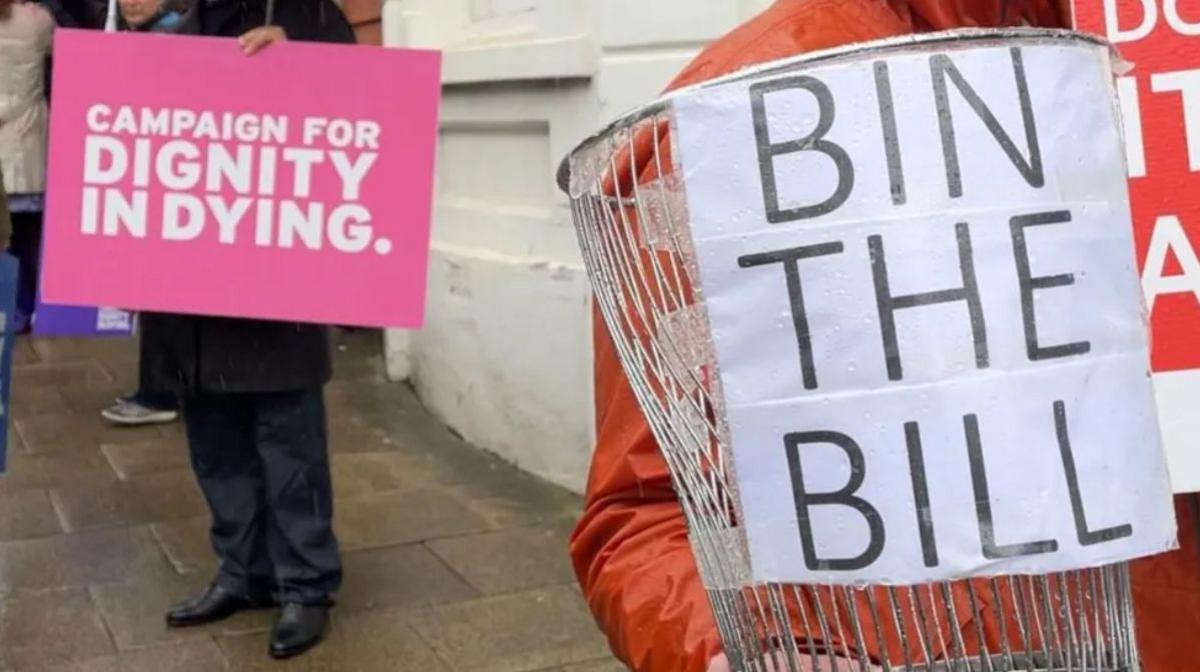Starmer sticks by promise of assisted dying free vote

- Published
Sir Keir Starmer has insisted he remains committed to giving MPs a free vote on assisted dying laws at some point.
The prime minister said he would provide parliamentary time for a vote if a backbench MPs proposed changing the law, but stressed the government had other "priorities for the first year or so".
Free votes are where MPs can vote based on conscience rather than having to follow a party line.
Sir Keir supported a change in the law the last time the issue was voted on in the Commons nine years ago and the cause has been championed by broadcaster Dame Esther Rantzen.
Dame Esther is terminally ill with lung cancer and last year revealed she had joined Dignitas, the assisted dying clinic in Switzerland.
Shipman damaged end-of-life care - David Davis
- Published29 April 2024
Employment protection for assisted dying medics
- Published9 July 2024
Assisted dying debate terrifying for disabled, says Liz Carr
- Published7 May 2024
Speaking on a trip to the NATO summit in the US, the new prime minister was asked whether he would hold the vote in the first year of his government.
Sir Keir replied: "What I said was that we would provide time for this by way of a private member's bill, and there will be a free vote.
"That remains my position for the reasons I've set out, having probably got more experience on this than most people, having personally looked at tens of cases in my time as director of public prosecutions.
"As to the timing of it, I haven't made a commitment on that and I don't want to.
"I'm not going back on the commitment I made, it's just we have got to set out priorities for the first year or so, but I will double down on the commitment that we are going to do that, we will allow time for a private member's bill, and there will be a free vote."
Assisted suicide - intentionally helping another person to end their life - is banned in England, Wales and Northern Ireland, with a maximum prison sentence of 14 years.
While there is no specific offence of assisted suicide in Scotland, euthanasia is illegal and can be prosecuted as murder or culpable homicide.
Trying to kill yourself is not by itself a criminal act.
A bill to legalise assisted dying in the UK was defeated in 2015, but was backed by Sir Keir and several Tory cabinet members.
He has previously said he thinks "there are grounds for changing the law".
Opponents to changing the law say it is to protect the vulnerable and ensure that nobody is pressured into dying sooner than they might otherwise.
Over 200,000 people signed a petition for a vote on assisted dying, leading to a debate in Parliament in April.
There was no vote and the government remains neutral on the issue.
Many shared stories related to losing relatives and loved ones, and how it informed their view on the topic of assisted dying.
A private member's bill (PMB) is a proposed law change introduced by an MP, not the government.
PMBs rarely become law without the support of government, as they do not get the same amount of time dedicated to government businesses.
Free votes are common on matters to do with health, religion or military intervention.